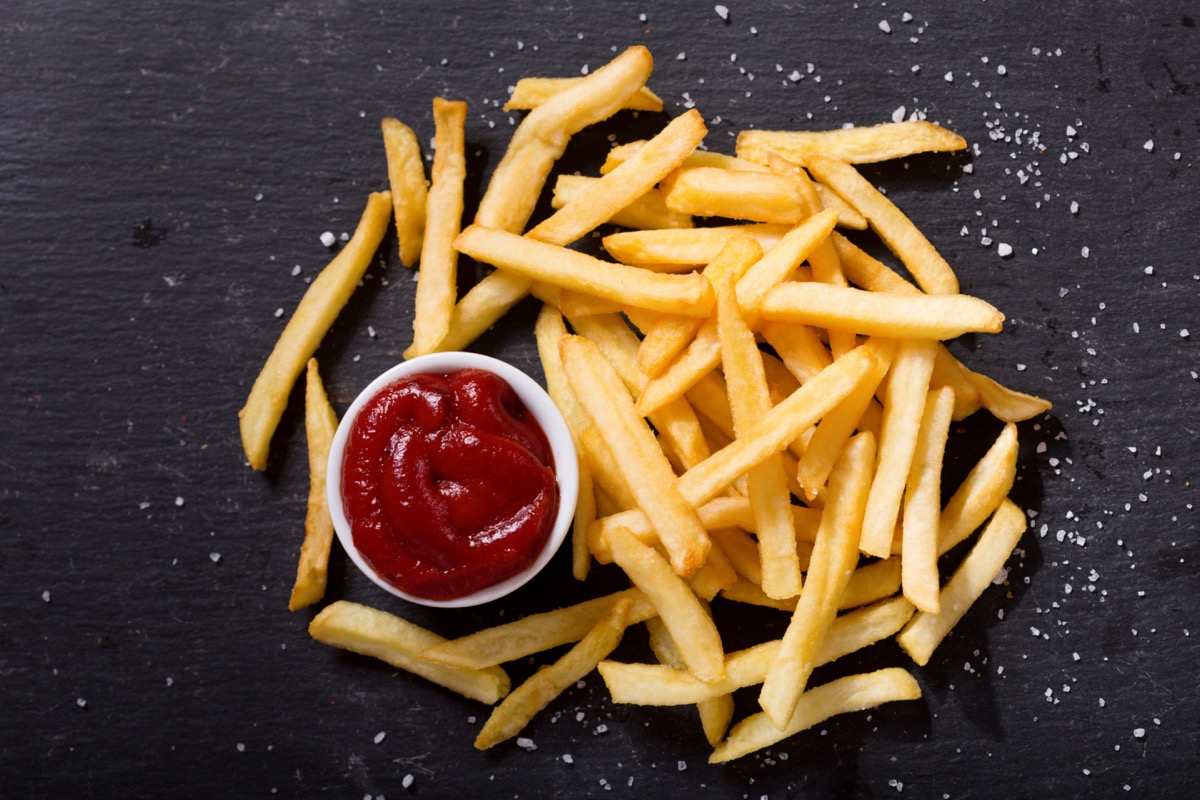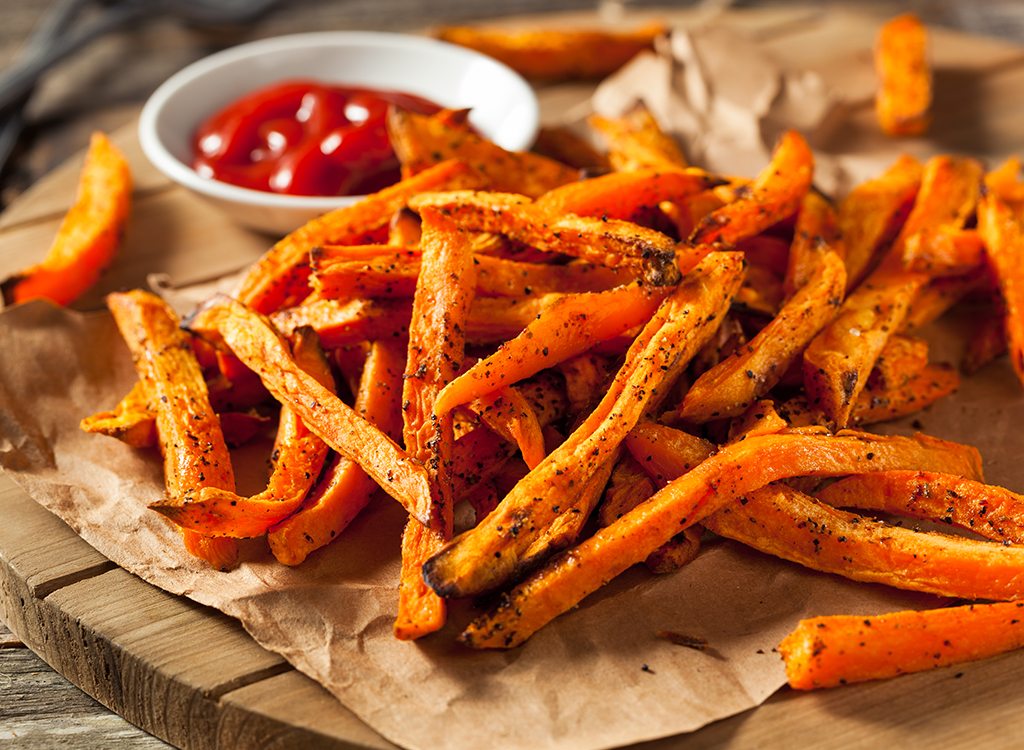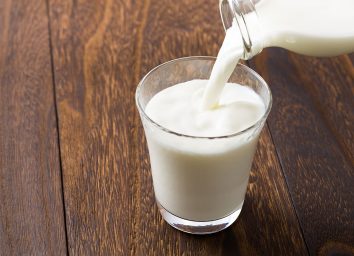This Is What Happens to Your Body When You Eat Fries

Fries are always doomed to be on the “naughty” list. Typically paired with a fatty cheeseburger or fried fish, fries are easily put in the category of being unhealthy for you. But did you know that fries can be a great source of nutrients? When it comes to what happens to your body when you eat fries, it all has to do with the way that those fries have been prepared.
We did a deep dive into french fries, looking at the risks and the benefits of eating fries on the regular, and how your favorite salty snack can actually help you with your weight loss efforts. No, we really aren’t kidding about this one.
They are heavy in saturated fats.

If you’re snagging a bag of fries that have been heavily fried in oil, they are likely dripping in saturated fats. Taking in too much saturated fat can raise your “bad” LDL cholesterol levels and can potentially lead to heart disease and stroke. According to Cleveland Clinic, one person should limit their saturated fat intake to no more than 10% of their total calories. If you are looking to reduce your risk of heart disease, the recommended number is actually 7%. So if you are working with a 1,700 calorie diet, 10% of that would be 170 calories worth of saturated fat, which is an average of 18-19 grams a day. Fries can easily increase that amount in one sitting, so make sure to portion them out carefully.
They give you lots of nutrients—on one condition!

Did you know French fries can actually be good for you? It’s true! The trick is to actually keep the skin on the potato when you’re cutting up and making your own French fries at home. According to Amy Goodson, MS, RD, CSSD, LD, the skin is a big part of the nutrients that the potato provides.
“When we talk French fries, most of the time, the skin has been removed and they are emersed in oil and fried,” says Goodson. “Some of the nutrients are in the skin, so removing the skin removes some of those nutrients.”
According to Goodson, a medium-sized white potato provides 620 milligrams of potassium, 45% of your daily value of vitamin C, and 3 grams of protein. Plus, it only contains 110 calories and 26 grams of complex carbohydrates—the kind of carbohydrates you want in your diet. It’s also a great source of vitamin B-6.
They are a great weight-loss food if you cook them yourself.

While french fries from your local burger joint are super tempting, chances are you’ll cut down on the calories (and the saturated fat) when you simply roast your own fries at home.
To make them yourself, Goodson recommends cutting up a potato into fry-sized pieces (with the skin on!), drizzle in olive oil, and roast in the oven. You can even season with herbs like rosemary and cut down on the overall salt content by simply sprinkling it on yourself.
Goodson points out that it’s essentially the “same concept, more nutrients, and less saturated fat—a win for fry lovers!”
So why not give our Best-Ever Oven-Baked French Fries Recipe a try!
Potatoes will keep you feeling full.

Did you know that potatoes are actually considered one of the best appetite suppressants? It’s true! The Department of Biochemistry at the University of Sydney released a Satiety Index of Common Foods that revealed the fullness levels of foods compared to an average white bread. Potatoes were actually considered to have the highest satiety—three times more than white bread!
So if you roast up your own fries at home, you’re not only getting a great number of nutrients in your diet from one potato, but it will leave you feeling full more than any other food!
They are healthier than sweet potato fries.

Although sweet potatoes are deemed to be the “healthier” potato, the facts don’t actually back up said claim. In comparison to a regular white potato, a sweet potato pretty much provides the same nutrients. In fact, a white potato provides even more nutrients compared to the sweet potato. According to Goodson, the only difference in the sweet potato is the beta carotene—a component of vitamin A—which makes the sweet potato orange.
All in all, french fries really aren’t that bad, as long as you roast them yourself at home—with the skin!
For more healthy eating tips, be sure to sign up for our newsletter.








